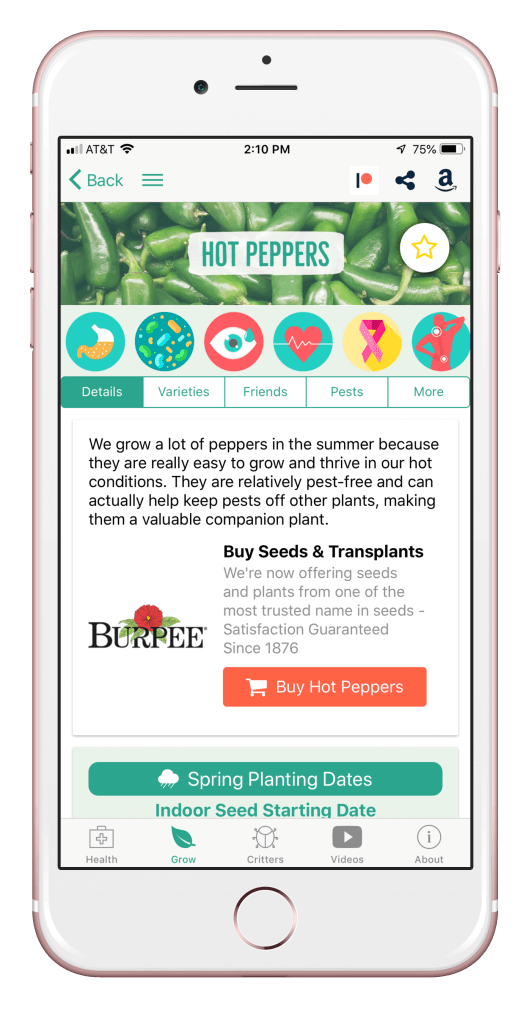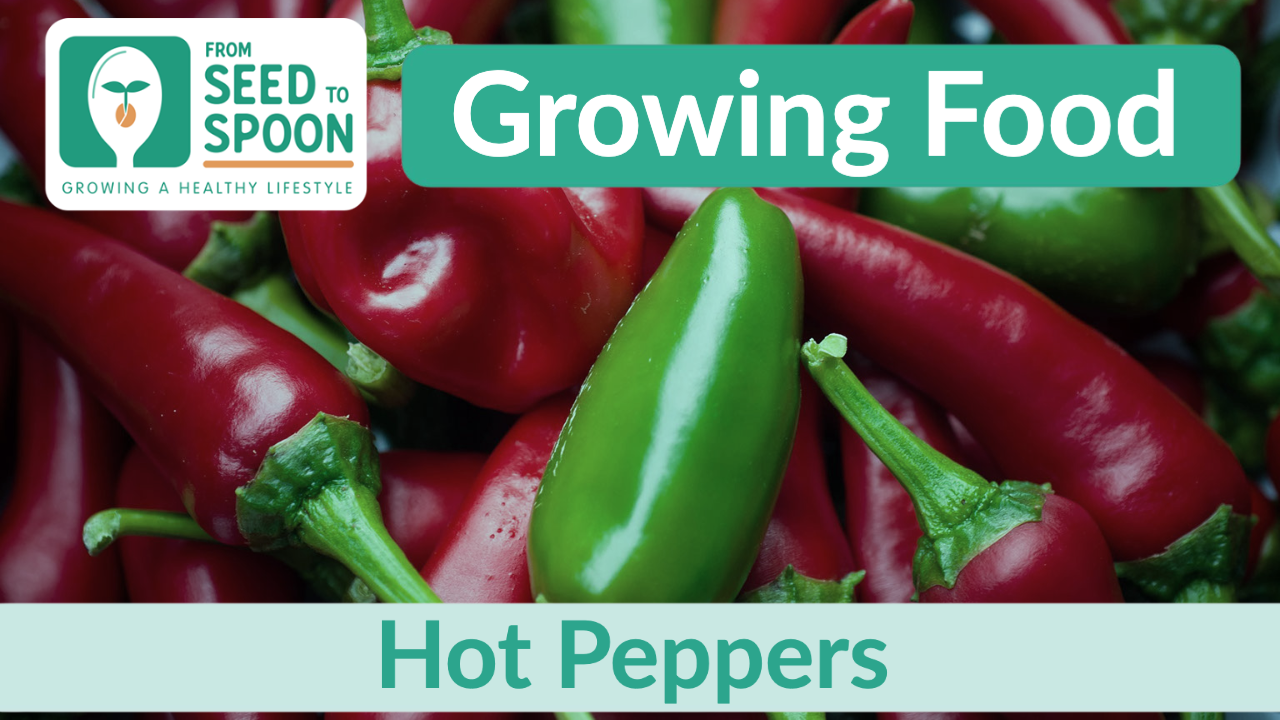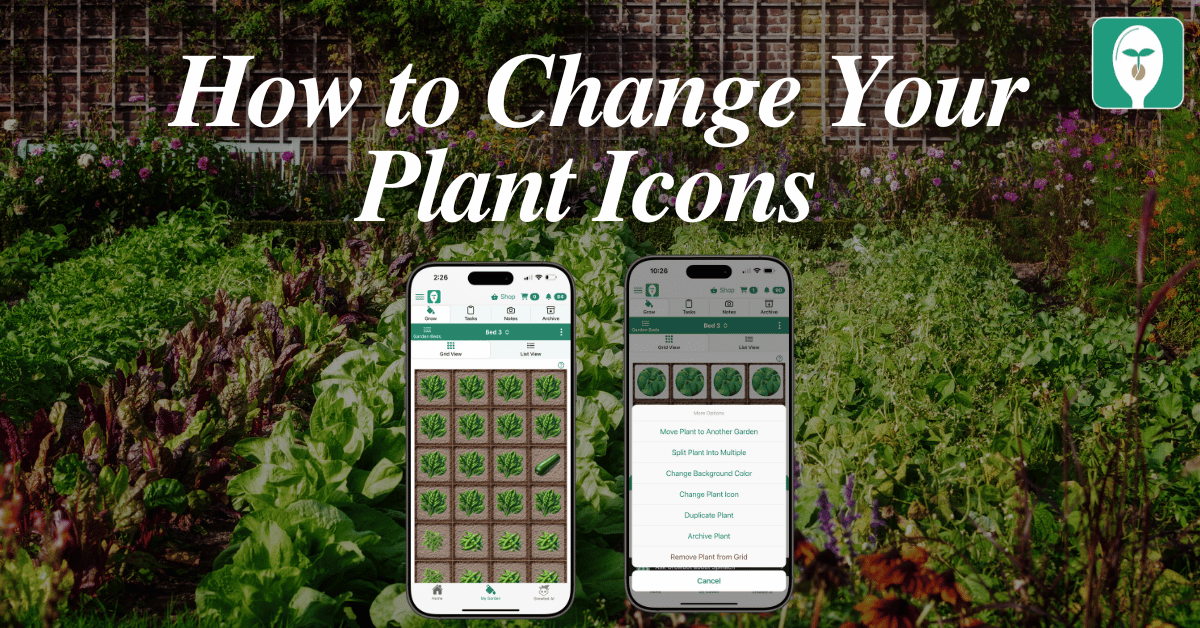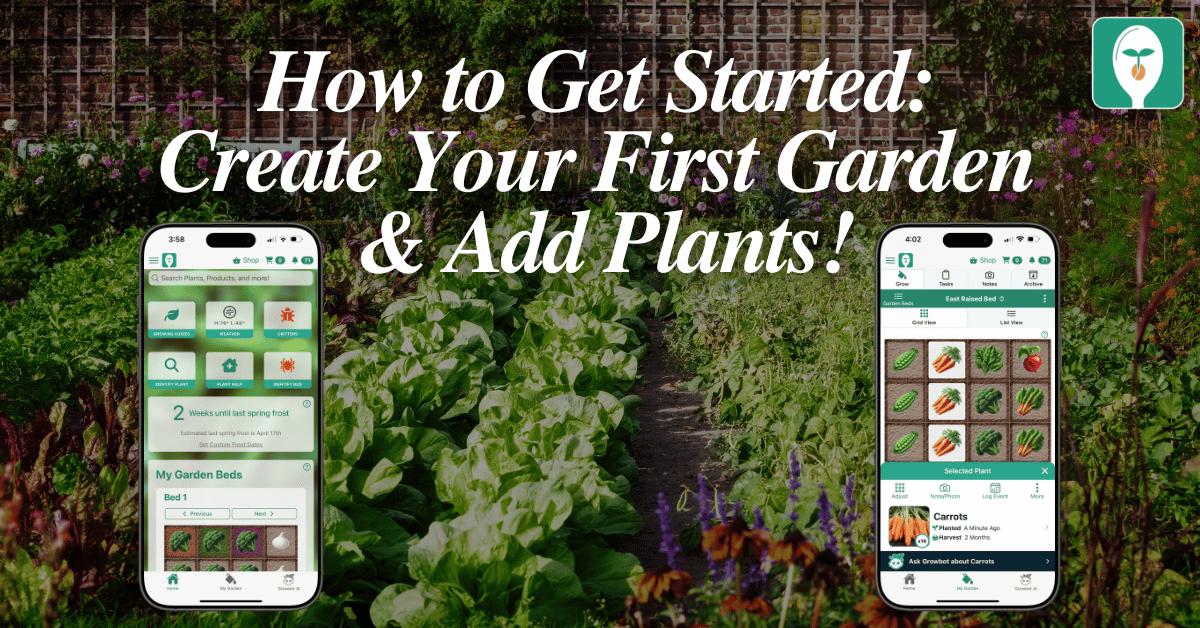How to Grow:
Plant hot pepper seeds 8 weeks before your last spring frost and outdoors 2 weeks after your last spring frost. Peppers can be planted throughout the summer up until 14 weeks before your first fall frost. You can see specific dates for your location using our FREE iOS, Android, and Universal Web App. Plant hot pepper seeds 1/4 inch deep, 1 per square foot, in the full sun. Peppers will do best if you can provide staking support as they mature and produce fruit. We really like using bamboo stakes! Take care to notice what plants are around the area as well, see the companion plant section below. Hot pepper seeds will sprout in 15-25 days. Water weekly, but be careful to not wet the leaves.Companion Plants:
Companion planting is a vital part of organic gardening. Companion plants assist in the growth of others by attracting beneficial insects, repelling pests, or providing nutrients, shade, or support. There are also plants that do not like being next to each other. Some plants get too tall and can provide too much shade for your plant. Sometimes certain plants attract the same pests, so it is important to try and separate these. Herbs are especially great companion plants because they help to repel pests from your other plants!iOS, Android, and Universal Web app!Pests:
Pests can be one of the most difficult challenges you face in the garden. We strive to grow food without the use of pesticide and luckily there are natural solutions for most of these nasty pests! The pests listed below are common pests for hot peppers:- Aphids
- Corn Earworms
- Cutworms
- Flea Beetles
- Leaf-footed Bug
- Nematodes
- Potato Beetles
- Tomato Hornworms
- Voles (Field Mice)
Harvesting:
Hot peppers should be ready for harvest in approximately 60-100 days. Harvest them at any point you desire. Peppers will turn different colors after different amounts of time on the vine. When you harvest, be careful not to pull on them so you don’t break branches.Cooking & Eating!


Carrie Spoonemore, co-founder of “From Seed to Spoon,” stands as a beacon of inspiration for gardeners and health enthusiasts alike. Her journey alongside her husband, Dale Spoonemore, in creating a platform that demystifies gardening and promotes a healthier lifestyle, has made a significant impact on individuals around the globe. Through the “From Seed to Spoon” app, Carrie has dedicated herself to empowering people to take control of their health and environment by growing their own food.
With a profound belief in the power of gardening to improve mental and physical health, Carrie’s contributions to the Seed to Spoon blog reflect her holistic approach to wellness. Her articles often focus on the nutritional benefits of homegrown fruits and vegetables, organic gardening practices, and the mental health benefits of spending time in nature. Carrie’s expertise in health science shines through in her detailed discussions on how specific plants can contribute to a balanced diet and overall well-being.
Carrie’s passion for gardening is deeply intertwined with her commitment to family and community wellness. She frequently shares personal stories of how gardening has brought her family closer together, offering practical tips for involving children in gardening activities and making it a fun, educational experience. Her writing encourages families to explore gardening as a means of spending quality time together while learning about nature and sustainability.
In addition to gardening advice, Carrie’s contributions to the blog include insights into the use of technology to enhance the gardening experience. She has played a crucial role in designing the “From Seed to Spoon” app to be user-friendly, ensuring that users of all ages and backgrounds can navigate the complexities of gardening with ease. Her vision for the app is not just as a gardening tool but as a vehicle for change, inspiring individuals to adopt a more sustainable lifestyle by growing their own food.
Carrie Spoonemore’s presence on the blog is marked by her compassionate approach to teaching and her unwavering belief in the transformative power of gardening. Her work continues to inspire a community of gardeners to pursue a healthier, more sustainable way of living, proving that with the right tools and knowledge, anyone can become a gardener and advocate for their health and the planet.







12 thoughts on “Hot Peppers (Jalapeños): How to Grow and When to Plant in Your Backyard or Patio Garden!”
We grow them, but not very well. They prefer warmer climates. Ours slowly make a few fruits, but then languish for the rest of the season. However, some varieties of bell pepper do quite well in the Salinas Valley, where the climate is just as mild.